After a long hiatus, I’ve finally found a way to continue this series despite my much greater workload (and other commitments) this semester: simply bookmarking stories as soon as they arise, then passing them on the moment I have 10 of them. And in particular, by making sure to dispense with the usual lengthy analysis.
Alas, 1500 words later, I’m still trying to figure out what happened to that last exactly. But in the meantime, here are the stories in the order that I came across them at least, albeit with one exception for the most eye-catching one…
1) Like GirlFriday of Dramabeans said of the above poster for Pretty Romance (쩨쩨한 로맨스), what’s wrong with equal implied-nakedness?

2) South Korean military developing separate uniforms for female soldiers
Was anybody else surprised to learn that there weren’t already female uniforms in use? In 2010?
In the Defense Ministry’s defense though (no pun intended), there are actually only 6000 female soldiers out of a total of 655,000 in the armed forces, so the delay is somewhat understandable.
Which begs the question of why female soldiers in the US have also had to wait then, considering there’s over 160,000 of them!
3) 33 year-old female teacher has sexual relationship with 15 year-old student
See the Korea Times for the basic details, and Gusts of Popular Feeling, Brian in Jeollanam-do, and The Marmot’s Hole for a great deal of analysis and discussion (even the parody site The Dokdo Times has some good points).
In particular, note that while the teacher was fired from her job, she will not actually be charged with anything, as this case has – once and for all – conclusively demonstrated that the age of consent in South Korea is 13, one of the lowest in the world. And if this case has a silver lining, it is that it will at least lead to greater awareness and discussion of that, particularly in the context of a great deal of concern already having been raised about the alleged prostitution of and overly sexual performances of underage entertainers.
Unfortunately however, currently Korea is also in the grip of what is effectively an internet witch-hunt against her, which – however deserved one may feel it is – is not without its problematic elements.
4) Korea’s birthrate is the 3rd lowest in the world
That’s according to the U.N. Population Fund’s State of World Population Report for 2010, although rather confusedly it also says that South Korea’s population is 48.5 million, whereas it has just been widely reported in the Korean press that Korea’s population has in fact reached 50 million.
Update: There are many reasons why Korea’s birthrate is so low of course, but if Mike in Busan’s recent experiences are anything to go by, then the effect of the appalling service provided by some maternity hospitals may also play a large role in that.
For the record, those hospitals my 2 daughters were born at were both fine, although I was rather surprised that the one my first daughter was born at – also a maternity hospital – didn’t have incubators with their own oxygen supply, which meant my 2nd (very premature) daughter had to be born at a general hospital instead. It was not a fun ride in the ambulance going between them at 3am while carrying a sleepy 2 year-old, let alone for my wife.
5) Menses celebration day established
Granted, this news sounds a little strange at first, and the young girls themselves look somewhat less than thrilled about it. But I think this idea deserves some definite respect:
Young girls who started menstruation early cut a big rice cake with representatives of medical doctor’s organizations at a convention to announce foundation of “Menses Day” (초경의 날) by the Korean Association of Obstetricians and Gynecologists (KAOG; 대한산부인과의사회) at the Lotte Hotel in Seoul, Oct. 20.
KAOG said that it adopted Oct. 20 as Menses Day to promote the importance of menstruation as a natural part of development, and to improve social awareness.
Alas, perhaps it is unfortunate that this being promoted by KAOG and not by, say, the Ministry of Gender Equality and Family Affairs (여성가족부/MOGEF), which might have indicated that the government is also more sympathetic to addressing the urgent need for sex education here. But of course I have nothing against KAOG itself(!), and I’m happy to report that it is pro-choice too, and not to be confused with the Korean Gynecological Physicians’ Association (GYNOB; 진오비) that supports the Lee Myung-bak Administration’s criminalizing of abortion.
As for Menses Day itself, if it takes off then it may have very positive effects in the long term. For even in the UK, teenagers generally feel that masturbation is natural for boys, but shameful, wrong, and dirty for girls, and my own experience suggests that, if anything, those perceptions are much stronger in Korea. Teach girls that their bodies are in fact something to be celebrated rather than be embarrassed of though, then they’re much more likely to have satisfying sex lives in the future (unlike all too many married Korean women, who effectively have no sex lives).
6) Challenging stereotypes of oversexed foreign women
Charged with negatively impacting Koreans’ perceptions of all foreign women because of their promiscuity, Korean “dating bloggers” and many others have (rightly) responded angrily to accusations. But spread over many posts, blogs, and hundreds of comments though, the ensuing discussion is a little difficult to follow, so I highly recommend reading I’m no Picasso‘s post for an excellent summary of the issues raised, and her own rebuttal.
For further context, see my Korean Sociological Image #18: Sexualizing Caucasian Women also.
7) It pays to hire women in countries that won’t
As I have long noted, it is simply crazy to educate women to such world-high standards, only then to fire them and/or make it virtually impossible to work after either turning 30, getting married, or (especially) having children. And indeed, Korea remains the only country in the OECD where the more highly educated a woman is, actually the less likely she is to be employed.
If Korean companies won’t hire them however, then eventually more and more foreign companies will, as recently noted by the Harvard Business School and The Economist.
Update: The Idiot’s Collective also has a post about this.
8) No, morons, a love hotel is not a brothel
A self-explanatory post from Brian in Jeollanam-do, on articles in foreign newspapers over the accommodation provided for the first Korean Grand Prix. Like he says:
Because of my affinity for love motels, I’m sensitive to what’s unsurprisingly a lazy post that gets it wrong—and looks quick to jump on the “news of the weird” theme that runs through so much international news out of Asia in western sources—starting with the photograph that accompanied it.
See his “Motels and Hotels” category for more practical information about them. And for those more interested in the historical and sociological aspects of them, see my A Penetrating New Look at Japanese and Korean Love Hotels for a book on the history of their development.

9) Pink glove charity event in Seoul
Apologies to 10 Magazine for only noticing their post about it 40 minutes before the actual event on Saturday. And I was quite surprised too, as The Korea Times at least argues that Koreans are generally aloof to the Pink Ribbon campaign as a whole.
Did anyone attend? If so, please let me know how it went!
10) Female protester makes big change in the conservative education sector
As I reported in August (see #8 here):
…the civil service remains one of the few institutions after the Asian Financial Crisis of 1997 which still provides “jobs for life”, unlike the rest of the Korean economy which now has the highest number of irregular workers in the OECD. Consequently, the various exams are extremely competitive, and indeed one of my own sisters-in-law spent over 4 years studying for hers before finally qualifying…for a series of grueling interviews, which many applicants still fail (including a friend of mine), but fortunately she made it through those as well.
Why this is a gender issue is because despite the difficulties, at least it is entirely meritocratic, and as such it has a disproportionate number of female applicants…
Regardless of the exam, the various ministries involved in its administration are legally required to inform the public well in advance of the number of jobs that will ultimately be available for successful applicants. But with one exception: the Teacher Certification Examination (TCE). So, not only was it devastating news for those taking the integrated social studies and the integrated science version yesterday to discover that there were actually no jobs available, thereby rendering years of study (for most of them) essentially meaningless, but only being told 4 weeks ago greatly compounded that blow.
Not content to meekly write-off the last 4 years of her life because of bureaucratic indifference however, 28 year-old applicant Cha Young-ran decided to do something about it. As reported in Global Voices, she single-handedly protested in front of the Ministry of Education building, and within 30 minutes was whisked inside to discuss her problem with officials, who brought the TCE in line with all other examination bodies that are legally required to give 6 months notice a few days later. As Global Voices says:
Cha’s request for change was a demand that anyone with a social conscience could have made. However, Cha was the one who actually took action and with a zest of fresh ideas, a rare change was made in one of the most rigidly bureaucratic areas of Korean life.
Here’s hoping she will be the inspiration for similar challenges to Korea’s “Just Bear It” mentality in the future.

Filed under:
Korean Gender Reader Tagged:
Cha Young-ran,
노량진녀,
대한산부인과의사회,
쩨쩨한 로맨스,
초경의 날,
KAOG,
Menses Day,
Pretty Romance,
The Korean Association of Obstetricians and Gynecologists 







 That “America Needs A New Constitution” sounds radical, but not to George Kenney.
That “America Needs A New Constitution” sounds radical, but not to George Kenney.



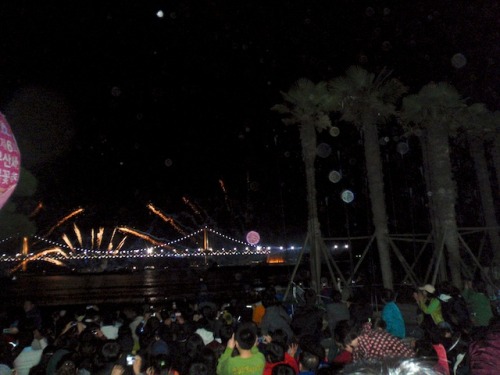
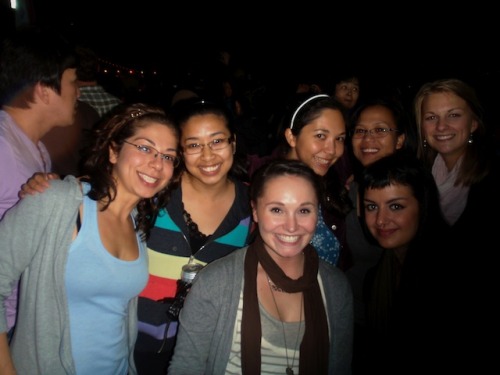
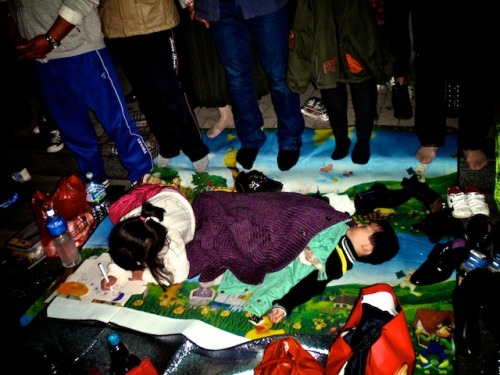









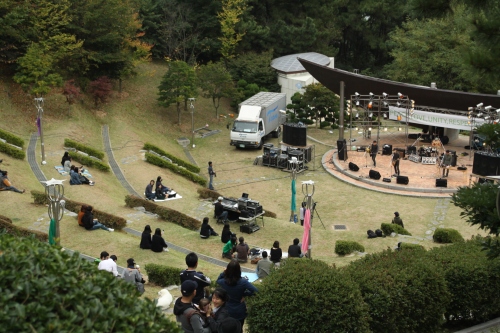



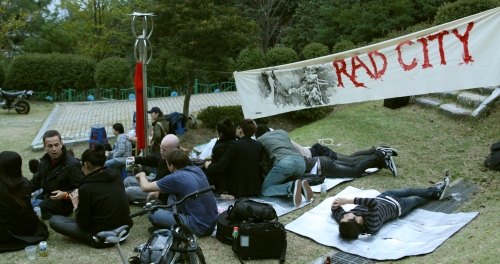
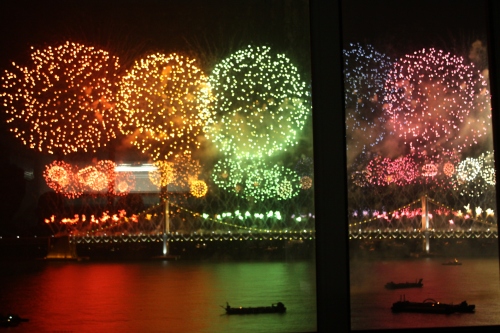

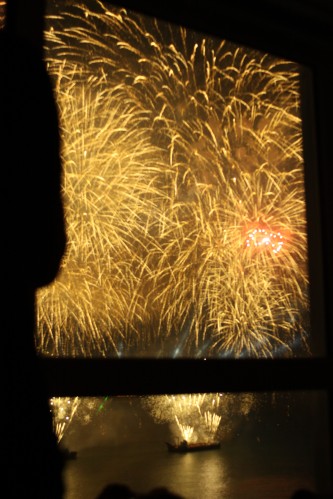


 Props to George Kenney and his
Props to George Kenney and his 
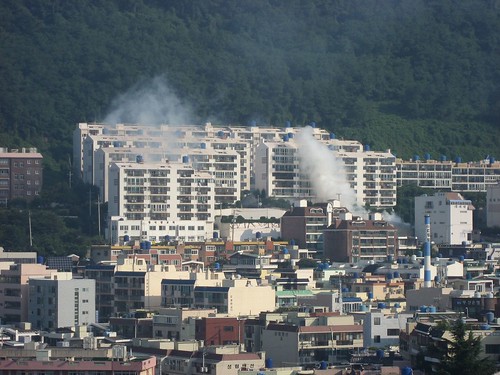
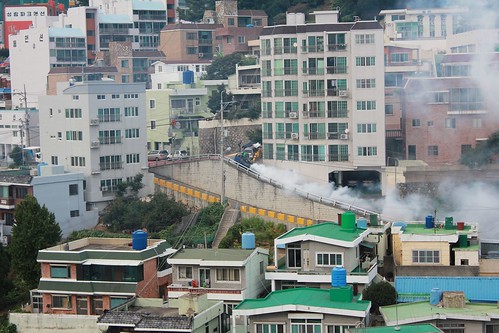
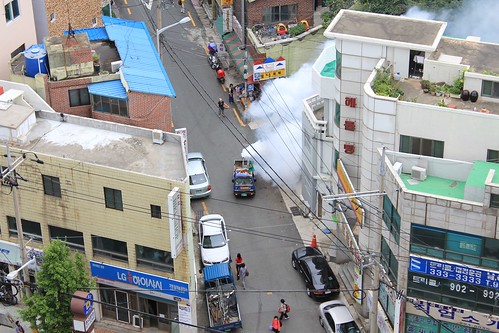
Recent comments